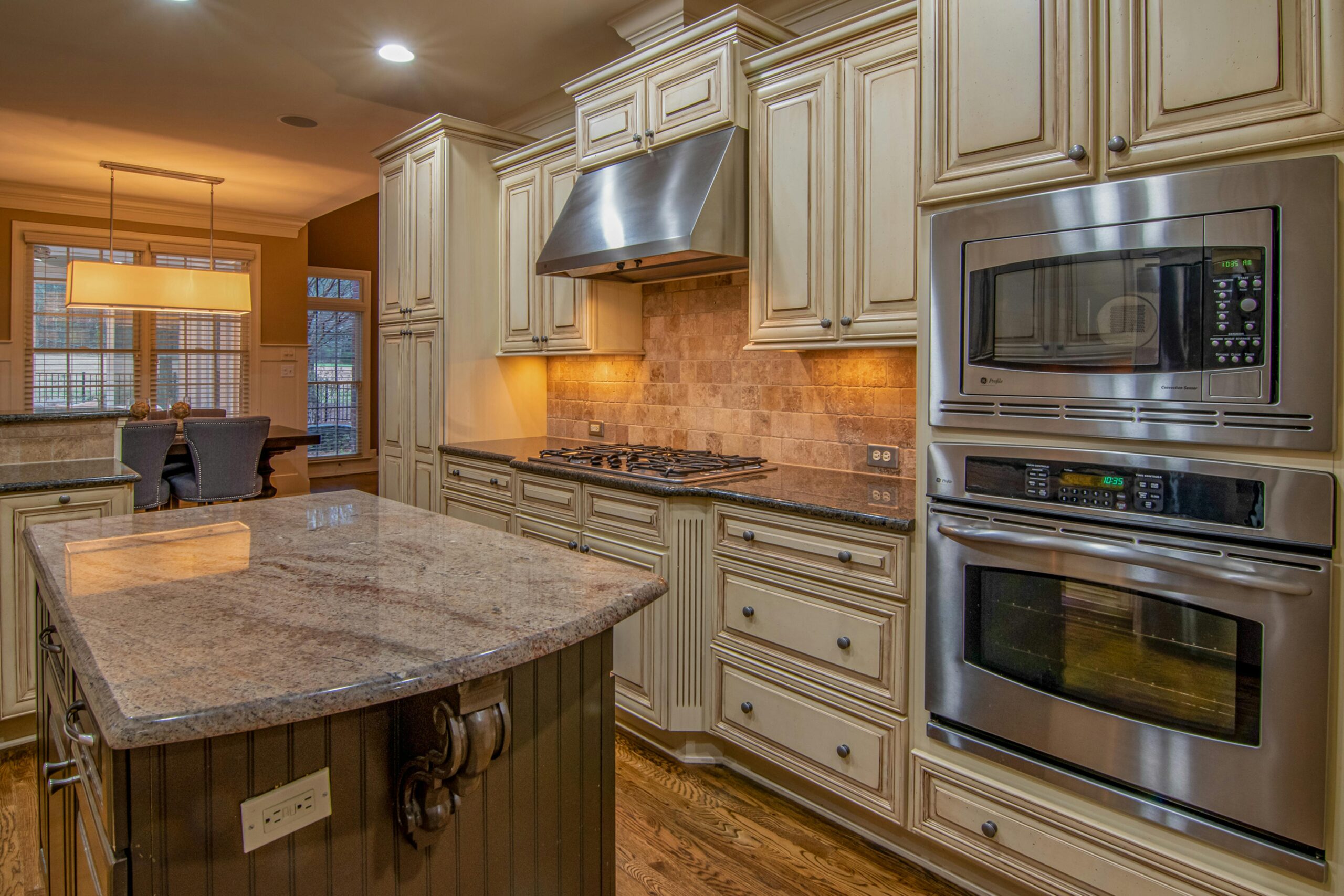Your kitchen countertops endure daily wear and tear, from meal preparations to household activities, making proper maintenance essential for their longevity and appearance. Different countertop materials require specific cleaning methods and products to preserve their unique characteristics and prevent damage. Understanding how to properly care for granite, quartz, and laminate surfaces can save you from costly repairs or replacements while keeping your kitchen looking its best. This comprehensive guide will walk you through the best practices for cleaning and maintaining these popular countertop materials.
Understanding Granite Countertops
Granite countertops add elegance and value to any kitchen with their natural beauty and durability. These natural stone surfaces require specific care to maintain their luster and integrity. When it comes to cleaning granite countertops, it’s crucial to avoid acidic cleaners like vinegar, lemon juice, or products containing ammonia as these can etch the surface and damage the sealant. Instead, use warm water with a few drops of mild dish soap and a soft cloth for daily cleaning.
For stubborn stains on granite, create a paste using baking soda and water. Apply the paste to the stain, cover with plastic wrap, and let it sit overnight before gently wiping away with a soft cloth. Remember that granite is porous and needs to be sealed regularly—typically once every six months to two years, depending on use—to prevent staining and bacteria absorption. You can test if your granite needs resealing by placing a few drops of water on the surface; if the water doesn’t bead up and instead absorbs within 10 minutes, it’s time to reseal.
Quartz Countertop Care Essentials
Unlike granite, quartz countertops are engineered stone surfaces that don’t require sealing, making quartz countertop care relatively straightforward. These countertops consist of ground quartz combined with resins and pigments, creating a non-porous surface that resists staining. For daily cleaning, simply use a soft cloth or sponge with warm water and mild soap.
Though quartz is highly durable, it’s not indestructible. Avoid placing hot pots and pans directly on the surface as extreme heat can damage the resins in the material. For dried spills or stuck-on food, use a plastic putty knife to gently scrape the surface, followed by a damp cloth with mild soap. Harsh abrasives, scouring pads, and alkaline cleaners should be avoided as they can dull the finish of your quartz countertop. For particularly stubborn stains, specialty quartz cleaners are available, but always check the manufacturer’s recommendations first.
Laminate Countertop Cleaning Tips
Laminate countertops remain a popular choice due to their affordability and wide range of designs. When it comes to laminate countertop cleaning tips, simplicity is key. Most laminate surfaces can be effectively cleaned with warm water and mild dish soap, applied with a soft cloth or sponge. For more stubborn stains, create a paste of baking soda and water, apply it to the stain, and gently rub with a soft cloth.
Unlike stone countertops, laminate can be damaged by excessive moisture, so it’s important to dry the surface thoroughly after cleaning. Avoid abrasive cleaners and scrubbing pads that can scratch the surface. For disinfecting laminate countertops, use a solution of water and household bleach (one tablespoon of bleach per quart of water), but be sure to rinse thoroughly afterward and dry completely. To prevent damage to laminate countertops, always use cutting boards and trivets for hot items, as laminate is susceptible to scratches and heat damage.
Professional Maintenance and When to Seek Help
While regular home maintenance goes a long way in preserving your countertops, some situations call for professional assistance. Deep stains, chips, cracks, or dull finishes may require specialized treatments beyond typical DIY methods. Professional countertop specialists have access to industrial-grade products and techniques specifically designed for maintaining kitchen countertops of all types.
When selecting the best cleaner for different counters, consider consulting with professionals who understand the unique properties of your specific countertop material. If you’re uncertain about what products to use or how to address particular issues, professional cleaning services can provide tailored advice and solutions. AskHomey connects homeowners with verified countertop cleaning and maintenance specialists who can help restore your surfaces to their original glory while preventing further damage.
Preventative Measures for All Countertop Types
Regardless of your countertop material, certain preventative measures can extend the life and appearance of your surfaces. Always use cutting boards rather than cutting directly on the countertop. Clean spills promptly, especially potentially staining substances like wine, coffee, or oil. Use coasters under glasses and trivets under hot items. Avoid placing toiletries with harsh chemicals directly on bathroom countertops, as these can damage the surface over time.
Establishing a regular cleaning routine is perhaps the most effective way to maintain any type of countertop. Daily gentle cleaning prevents buildup that can lead to more difficult cleaning challenges later. By understanding the specific needs of your countertop material and providing appropriate care, you can enjoy beautiful, functional surfaces for many years to come.
For more tips and to connect with reliable home service professionals, follow AskHomey on Facebook and Instagram.



